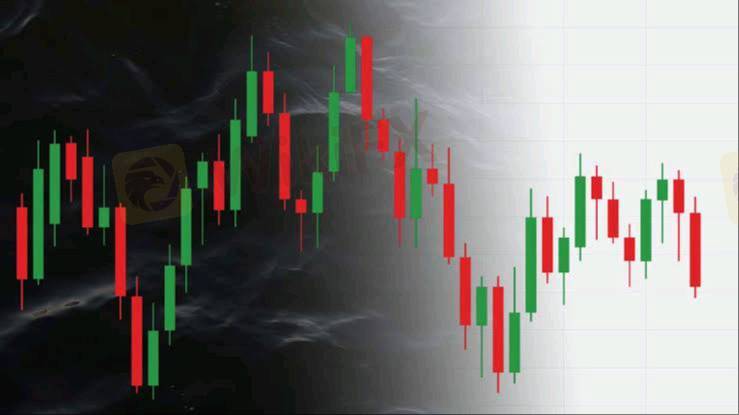
2025-02-06 19:58
业内Understanding Gas Fees in Ethereum Trading
#firstdealofthenewyearFateema
Understanding Gas Fees in Ethereum Trading
Gas fees are an essential part of trading on the Ethereum blockchain. They represent the cost of processing transactions and executing smart contracts. Here’s a breakdown of how gas fees work and how they impact Ethereum trading.
---
1. What Are Gas Fees?
Gas fees are payments made to Ethereum network validators (miners or stakers) to process and confirm transactions. These fees ensure network security and incentivize validators to include transactions in the blockchain.
2. How Are Gas Fees Calculated?
Ethereum gas fees are measured in gwei, where 1 gwei = 0.000000001 ETH. The total gas fee depends on three main factors:
Gas Limit: The amount of computational effort required for a transaction (e.g., a simple ETH transfer needs 21,000 gas).
Base Fee: A mandatory fee set by the network, which fluctuates based on demand.
Priority Fee (Tip): An optional incentive paid to validators to speed up transaction processing.
Formula:
\text{Total Gas Fee} = \text{Gas Limit} \times (\text{Base Fee} + \text{Priority Fee})
3. Gas Fees in Different Types of Transactions
ETH Transfers: Generally low gas costs (~21,000 gas).
ERC-20 Token Transfers: Higher gas fees due to smart contract interactions (~40,000–100,000 gas).
Swaps on DEXs (e.g., Uniswap): Even higher gas fees due to multiple contract interactions (~100,000+ gas).
NFT Transactions: High variability based on minting and trading (~100,000+ gas).
4. Why Do Gas Fees Fluctuate?
Gas fees fluctuate based on:
Network Congestion: More users mean higher fees due to competition for block space.
Ethereum Upgrades: Ethereum’s shift to Proof of Stake (PoS) (via Ethereum 2.0) has helped reduce gas fees but hasn’t eliminated congestion.
Gas Wars: When demand spikes (e.g., NFT mints), users increase priority fees to get transactions confirmed faster.
5. How to Reduce Gas Fees?
Use Layer 2 Solutions: Platforms like Arbitrum, Optimism, and zkSync offer lower gas fees.
Time Your Transactions: Gas fees are lower during off-peak hours (late nights UTC).
Adjust Gas Settings: Manually set gas fees to optimize cost-efficiency.
Use Gas Fee Estimators: Tools like Etherscan Gas Tracker help predict fee costs.
6. Impact of Gas Fees on Ethereum Trading
High gas fees can reduce profitability, especially for small trades.
Users may opt for Layer 2 solutions or alternative blockchains (e.g., Solana, BSC).
DEX traders often batch transactions to minimize costs.
---
Final Thoughts
Understanding gas fees is crucial for efficient Ethereum trading. With Ethereum scaling solutions improving and new upgrades like EIP-4844 (proto-danksharding) expected, gas fees will likely become more manageable over time. Until then, strategic planning and Layer 2 adoption remain the best ways to optimize costs.
Would you like insights on any specific Ethereum gas fee strategies?
赞 0
FX2542805120
거래자
热门讨论
业内
哎,现在明白不赌就是赢啊
行情分析
美元/加元技术面
技术指标
外汇技术分析之波浪理论
业内
[活動]論交易,贏取200元話費補貼
技术指标
EZ.Fury Kite是基于趋势指标MA进行判断
技术指标
指标派是什么?
集市分类

平台

展会

IB

招聘

EA

业内

行情

指标
Understanding Gas Fees in Ethereum Trading
 尼日利亚 | 2025-02-06 19:58
尼日利亚 | 2025-02-06 19:58#firstdealofthenewyearFateema
Understanding Gas Fees in Ethereum Trading
Gas fees are an essential part of trading on the Ethereum blockchain. They represent the cost of processing transactions and executing smart contracts. Here’s a breakdown of how gas fees work and how they impact Ethereum trading.
---
1. What Are Gas Fees?
Gas fees are payments made to Ethereum network validators (miners or stakers) to process and confirm transactions. These fees ensure network security and incentivize validators to include transactions in the blockchain.
2. How Are Gas Fees Calculated?
Ethereum gas fees are measured in gwei, where 1 gwei = 0.000000001 ETH. The total gas fee depends on three main factors:
Gas Limit: The amount of computational effort required for a transaction (e.g., a simple ETH transfer needs 21,000 gas).
Base Fee: A mandatory fee set by the network, which fluctuates based on demand.
Priority Fee (Tip): An optional incentive paid to validators to speed up transaction processing.
Formula:
\text{Total Gas Fee} = \text{Gas Limit} \times (\text{Base Fee} + \text{Priority Fee})
3. Gas Fees in Different Types of Transactions
ETH Transfers: Generally low gas costs (~21,000 gas).
ERC-20 Token Transfers: Higher gas fees due to smart contract interactions (~40,000–100,000 gas).
Swaps on DEXs (e.g., Uniswap): Even higher gas fees due to multiple contract interactions (~100,000+ gas).
NFT Transactions: High variability based on minting and trading (~100,000+ gas).
4. Why Do Gas Fees Fluctuate?
Gas fees fluctuate based on:
Network Congestion: More users mean higher fees due to competition for block space.
Ethereum Upgrades: Ethereum’s shift to Proof of Stake (PoS) (via Ethereum 2.0) has helped reduce gas fees but hasn’t eliminated congestion.
Gas Wars: When demand spikes (e.g., NFT mints), users increase priority fees to get transactions confirmed faster.
5. How to Reduce Gas Fees?
Use Layer 2 Solutions: Platforms like Arbitrum, Optimism, and zkSync offer lower gas fees.
Time Your Transactions: Gas fees are lower during off-peak hours (late nights UTC).
Adjust Gas Settings: Manually set gas fees to optimize cost-efficiency.
Use Gas Fee Estimators: Tools like Etherscan Gas Tracker help predict fee costs.
6. Impact of Gas Fees on Ethereum Trading
High gas fees can reduce profitability, especially for small trades.
Users may opt for Layer 2 solutions or alternative blockchains (e.g., Solana, BSC).
DEX traders often batch transactions to minimize costs.
---
Final Thoughts
Understanding gas fees is crucial for efficient Ethereum trading. With Ethereum scaling solutions improving and new upgrades like EIP-4844 (proto-danksharding) expected, gas fees will likely become more manageable over time. Until then, strategic planning and Layer 2 adoption remain the best ways to optimize costs.
Would you like insights on any specific Ethereum gas fee strategies?
赞 0
我也要评论
提问
0条评论

还没人评论,赶紧抢占沙发

提问
还没人评论,赶紧抢占沙发